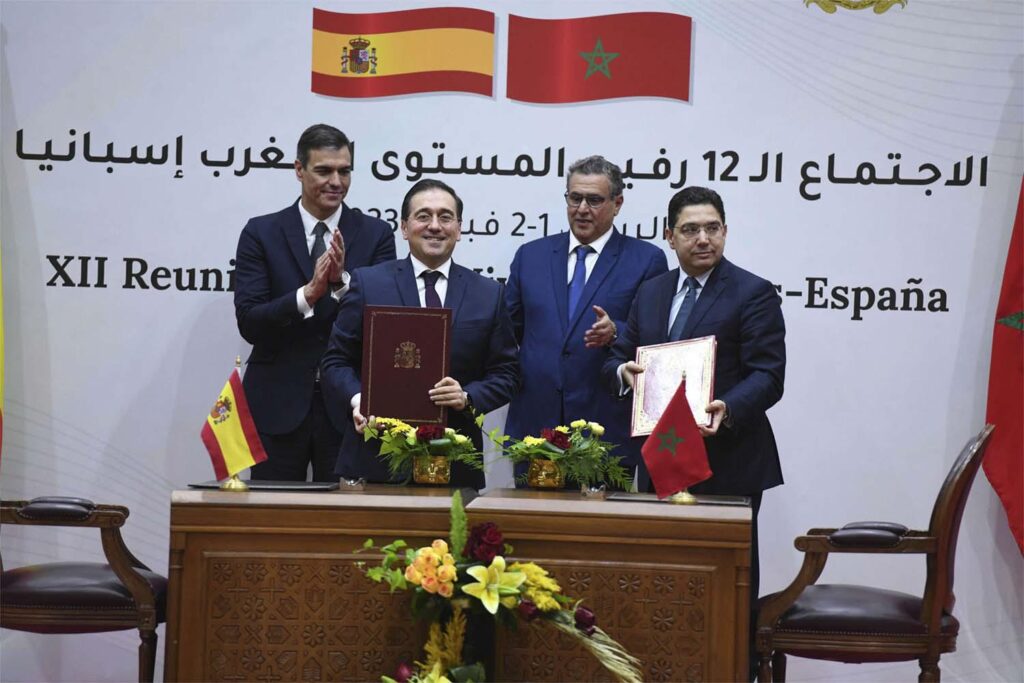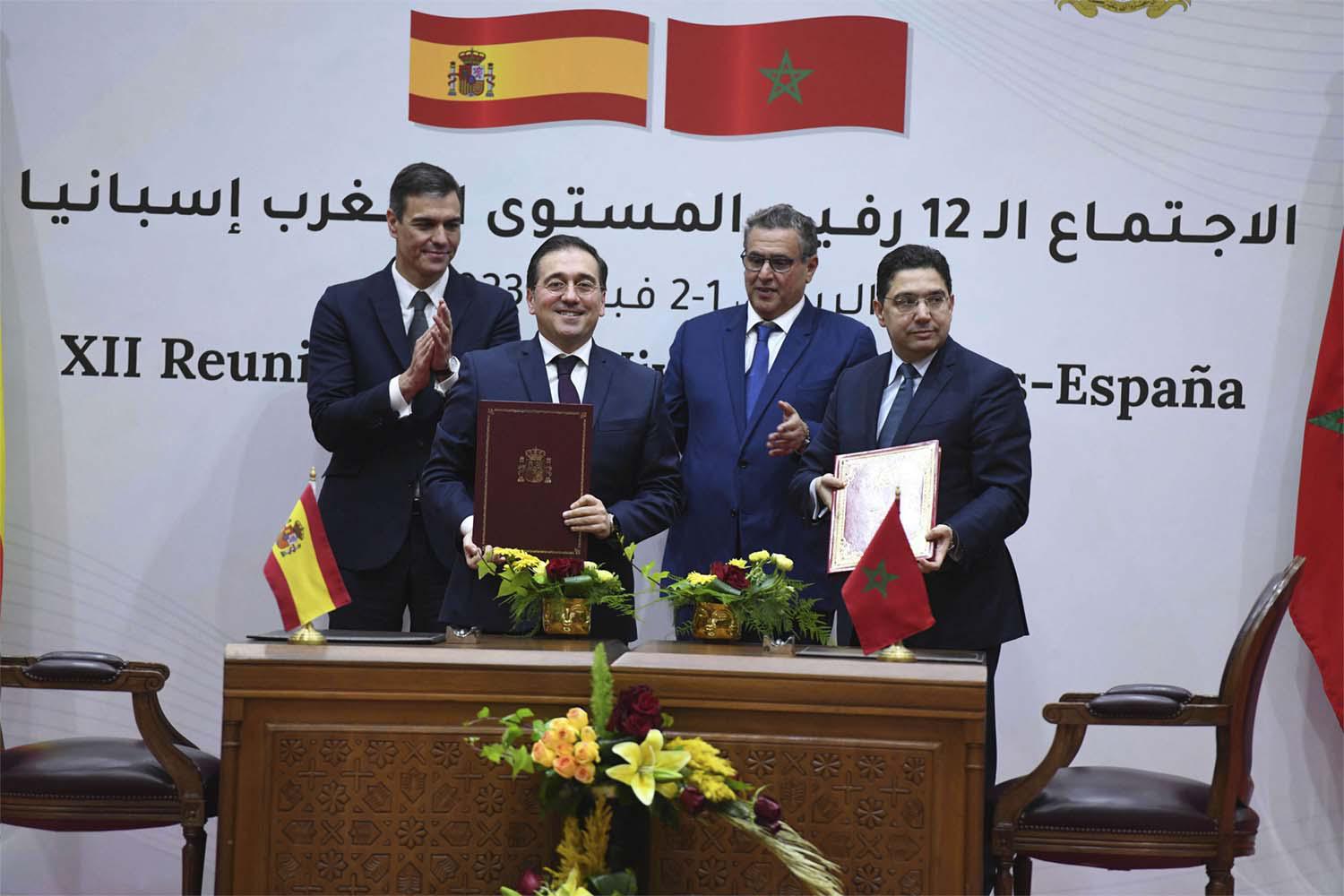
Spanish Institute for Governance and Applied Economics Coordenadas, a prestigious think-tank and research center, highlighted the “great potential” for the developing partnership between Morocco,Spain and Portugal.
“Thanks to their cooperation in fields such as trade, security and migration and to cultural and human exchanges, the three countries have forged a relationship that demonstrates an ability to adapt and collaborate in an increasingly interconnected world,” noted the Spanish think-tank in an analysis published on Monday.
For the analysis’ authors, the 2030 FIFA World Cup joint bid “undoubtedly exceeds the sports framework to symbolize the possibilities and expectations of a trilateral agreement that could extend to other areas,” and that “the three countries are neighbors and share over a thousand years of Mediterranean culture and historical collaborations that could today serve as a stimulus for a new wave of shared cooperation.”
“The Morocco, Portugal and Spain trilateral relation is a complex mix of history, politics, economy and culture that has evolved throughout centuries. The three countries share a unique geographical connection in the Maghreb region and the Iberian Peninsula, which has considerably influenced their interactions over time,” the document pointed out.
The Spanish think-tank added that Morocco is an important trade partner for the two Iberian countries, with exchanges ranging from agricultural products to manufactured goods and services, noting that geographical proximity and improved transport infrastructure have facilitated cross-border trade and economic cooperation.
Besides trade, the analysis noted that security cooperation is another showcase of the increased coordination between the three countries, adding that Morocco plays a crucial role in the fight against extremism in the region, working closely with Spain and Portugal in this area.
Migration is also an important issue in this trilateral cooperation, leading to the implementation of joint development programs in countries of origin and transit, as well as efforts to improve reception conditions and access to services for migrants, according to the same source.
These issues have evolved in a generally positive way in recent years, demonstrating a political and diplomatic maturity that offers enormous potential for stimulating ties between the parties, the analysis projected.
In the cultural sphere, relations between Morocco, Portugal and Spain are “rich and complex,” said the think-tank. The Arab and Berber influence on the Iberian Peninsula during the medieval period left an indelible mark on the culture and architecture of Spain and Portugal, as witnessed by the presence of Mudejar architecture and the influence of the Arabic language on Spanish and Portuguese. In turn, Spanish and Portuguese cultures have influenced Moroccan music, literature and gastronomy, creating a rich fabric of cultural exchange,” the same source added.


